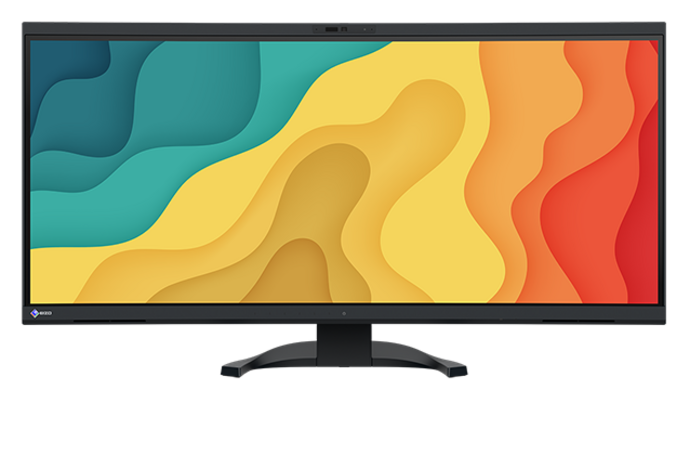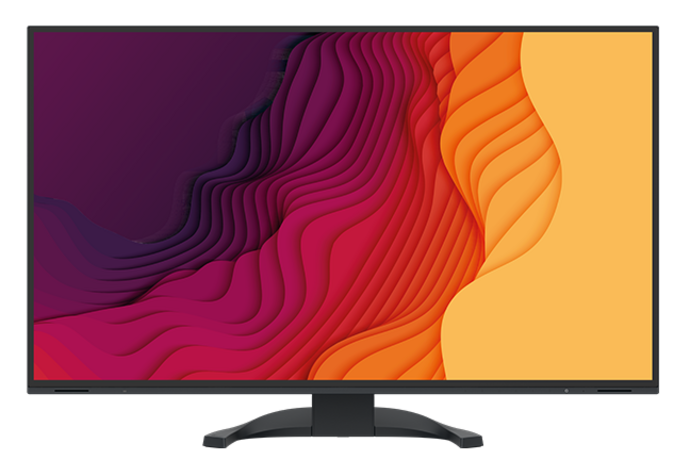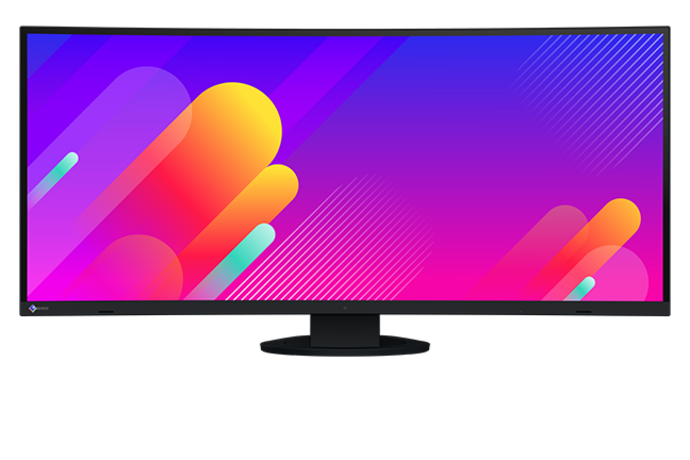32- and 34-inch monitors offer generous screen surfaces for efficient multitasking, a great overview and maximum productivity. In this article, we show you what to look out for when choosing a monitor - from size and resolution to ergonomic features and the right connections.
Plenty of room for productivity
32-inch and 34-inch monitors
Large monitors offer plenty of space for comfortable working and efficient multitasking.
To the 32/34-inch monitors
The advantages
Who is a 32- or 34-inch monitor suitable for?
A large monitor offers clear advantages for anyone who wants to work efficiently in the office or home office. 32- (or 31.5-) and 34-inch monitors offer plenty of space for real multitasking, such as using several windows or applications like spreadsheets, video conferencing, browsers or emails at the same time. Thanks to the spacious screen area, content can be displayed side by side without overlapping windows or having to constantly switch between them.
Of course, large monitors are also ideal for photo and video editing or designing. In a private environment, monitors with large screen diagonals are perfect for streaming or gaming after work.
Is a 32-inch monitor or 34-inch monitor too big for gaming?
A 32-inch or 34-inch monitor is not always too large for gaming - on the contrary: a large monitor offers an intense gaming experience.
However, it depends on the genre of the game: For adventure, simulator, story or strategy games as well as MMOs or MMORPGs, large monitors are very well suited and offer a fantastic gaming experience. The large screen area allows you to immerse yourself completely in the gaming world. For shooters (e.g. FPS or TPS) and competitive gaming, however, the size can take some getting used to, as an overview and extremely fast response times are required.
The models in the EIZO FlexScan product line are ideal for many video games thanks to their excellent color and image quality, high resolutions and good response times.
Ideal for multitasking with picture-by-picture
Many large monitor models support picture-by-picture (PbP), or split-screen use, allowing two or three computers to be connected simultaneously and displayed independently of each other - ideal for working in parallel with a laptop and desktop PC or for combining professional and private applications.
Predefined picture-by-picture layouts are available on selected EIZO models at the touch of a button, allowing you to conveniently display multiple applications in different sizes. This turns the monitor into a real work center.
Inches and centimeters
How big is a 32-inch or 34-inch monitor?
The screen diagonal of a 32-inch monitor is around 80-81 cm, while a 34-inch monitor measures around 86 cm. Both offer a large work surface and are therefore ideal for multitasking and uninterrupted work.
A 32- or 34-inch monitor may seem large at first glance - but with sufficient distance (around 70-90 cm) and a suitable desk, it is by no means oversized. On the contrary: it creates an overview and reduces the need to constantly switch between windows, which can help concentration and increase productivity.
More pixels, more image details
Which resolution is ideal for a 32- or 34-inch monitor?
High resolutions are recommended for 32- and 34-inch monitors. The larger the screen, the more important a fine display is - especially for texts, tables or design work. A 4K UHD resolution (3840 × 2160 px) in particular delivers maximum depth of detail on a 32-inch monitor and is therefore ideal for demanding applications. For 34-inch monitors in ultrawide format, a UWQHD resolution (3440 × 1440 px) is recommended and the common standard.
A high resolution is also easy on the eyes, as it ensures a smoother, clearer display.
Connectivity
Many connections, many possibilities
As 32-inch or 34-inch monitors are versatile all-rounders, it is advantageous if they have various connection options. HDMI and DisplayPort, which enable stable image transmission in high resolution, are of course important.
Another real advantage is a USB-C connection, which not only transmits images and data, but can also supply the connected device with power. This is particularly practical for laptops and MacBooks. If the monitor also has additional USB upstream and downstream ports or a dedicated LAN port (RJ-45), the monitor becomes a real docking station.
If you want to work flexibly, you should therefore look out for versatile connection options.

Gentle on eyes and back
Why is ergonomics particularly important for large monitors?
Ergonomics play a central role with 32- and 34-inch monitors. Due to their size, flexible height adjustment is required to position the screen correctly below eye level. This noticeably relieves strain on the neck and back. The option to tilt or rotate allows for individual adjustment.
Another ergonomic advantage is the image quality: models with an IPS panel offer uniform illumination, stable colors and a clear display from different viewing angles. Monitors from EIZO are also optimally anti-glare and flicker-free. This ensures a pleasant viewing experience and can reduce eye strain.
A curved design with a curved display surface also supports a comfortable view, as the side areas of the screen remain better in view.
32-inch monitors and 34-inch monitors: our recommendations
FAQs
Frequently asked questions about 32-inch and 34-inch monitors
For a 32-inch or 34-inch monitor, a sitting distance of approx. 70-90 cm is recommended. This keeps the entire picture in view without having to move your head too much.
The diagonal of a 32-inch screen (or 31.5-inch screen) is about 80-81 cm.
The diagonal of a 34-inch screen is about 86 cm.
Ideally, a 32-inch monitor should offer a 4K resolution (3840 × 2160 px) to ensure a sharp picture. For 34-inch monitors in ultrawide format, UWQHD resolution (3440 × 1440 px) is recommended and is the common standard.
With a 32- or 34-inch monitor, ergonomic features such as height adjustability and tiltability are particularly important due to the large display surface. They ensure a healthy posture and relieve strain on the neck and back. General ergonomic features such as flicker-free, anti-glare, viewing angle stability for a stable color display, automatic brightness adjustment and color modes also apply.
A 32- or 34-inch monitor is not too big for the desk, as long as the desk is wide and deep enough (at least 80-100 cm deep). With the right distance and ergonomic alignment, large monitors offer a better overview and comfort - ideal for multitasking, creative work or gaming.
Whether a 32-inch or 34-inch monitor is better depends on the intended use and your own preferences: A 32-inch monitor is ideal for users who value high resolution with a classic aspect ratio. A 34-inch monitor in ultrawide format, on the other hand, offers even more space for parallel work in multiple windows or immersive games. Both sizes offer plenty of room for productive work and multitasking - the choice depends on your personal workflow and available space.











